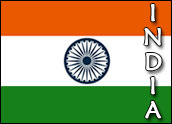Canadian call centers were recently estimated by U.S. law enforcement authorities to be doing US$100 million in illegal business annually in the U.S. In comparison, InternationalStaff.net estimates that South Asian call centers operating illegally are currently generating four to five times that amount in total revenues.

InternationalStaff.net estimates that in India on any given business day, there are at least 300 call centers actively engaged in violations of U.S. telemarketing rules. The actual number of outlaw facilities in India could be twice that figure if unincorporated operations and those with less than 10 seats are included.
The call center boom now underway in Pakistan and the smaller boom that is about to start in Sri Lanka will inevitably increase the total number of non-compliant facilities making calls into the U.S. These new entrants will adopt the role of “bottom feeders” desperately searching for business opportunities that other, more established call center operators in the region have passed over as too risky.
Improvements in low-cost VoIP services that became available in mid-2004 are lowering the barriers to entry into the offshore call center field. Technology changes are also making it impossible to track the origin of telemarketing calls and for telemarketers to falsify the origin of calls placed into the U.S. from overseas.
The offshore call center industry has had a capacity glut in South Asia since it began in 1999. The inflated size of the South Asian call center industry has been aided by the lack of any effective enforcement actions by U.S. authorities. Mortgage programs and credit card acquisition programs are the two most popular types of telemarketing programs where violations of U.S. laws by South Asian call centers are commonly found.
Increasingly Predatory
Emboldened by the lack of enforcement by U.S. authorities, offshore call centers are becoming increasingly aggressive and predatory. One call center in Tamil Nadu, India, for example, is currently selling credit cards to U.S. consumers by first playing a recorded message in American English. This technique is known as call blasting.
Sales of credit cards are illegal in the U.S. So is the use of recorded messages, except in political campaigns and public safety emergencies. This Tamil center’s recorded messages also violate several states’ rules that require agents to ask permission before continuing with a call. Additional state rules that prohibit the use of rebuttals or the continuation of a call after a rebuttal are also being violated.
This Tamil call center is not registered to do business in any of the 24 U.S. states that require such registration (and bonding, in some states). The center does not maintain its own do-not-call list. And they do not appear to be complying with any U.S. state rules regarding adherence to state do-not-call lists. The center’s automated call blasting equipment does not enable the call center to provide a live agent within two seconds from the start of each call, as required by U.S. federal rules governing the use of autodialers.
Profit Potential
Each credit card sale results in US$110 to $240 being deducted from each U.S. purchaser’s bank account. This call center’s agents are only speaking with interested consumers, which gives that call center a phenomenal sales-per-hour rate compared to traditional telemarketing techniques that might only produce one credit card sale for every one or two hours of an agent’s time. This Tamil call center might not be paying its agents anything more than $2 per hour. Its long distance rates to reach the U.S. are $1 per hour.
No legitimate call center program placed through brokerage firms such as InternationalStaff.net is going to earn an offshore call center the amount of revenues that can be made by running programs illegally. If such an outlaw facility were to run a legitimate program, the implementation of the program would likely be botched due to the corporate culture of dishonesty, deception, and an arrogant hands-off management style that is commonly found at call centers aggressively violating U.S. telemarketing rules.
In a conversation on September 27, the aforementioned call center’s “Vice President of Corporate Solutions” claimed that their credit card sales program was an inbound program, and therefore exempt from any telemarketing rules (which they do not recognize anyway). The full story with this call center is worse. Much worse.
Another call center in that region is running a $300-per-sale telemarketing scam with a list of people that are all 80 years of age or older. These are the most vulnerable segment of our population for such scams, the very people who attorneys general in the U.S. should be most concerned about protecting.
No Enforcement Against Offshore Centers
On the federal level, only one legal action has been brought against a call center for violating the federal do-not-call-list rule and the two-second-response rule. That call center is in the U.S. The federal do-not-call-list rule has been in effect for one year.
Violations of the do-not-call-list rule might be considered to constitute harassment. The other rules mentioned above are more important for discouraging the epidemic of outright consumer fraud that is being conducted against U.S. consumers by South Asian call centers.
In conducting research for this article, no instance could be found of any U.S. state agency successfully concluding an enforcement action against a South Asian call center. Ever.
Global Criminals, Global Responses
Gone are the days when a U.S. state like California could restrict its call center compliance efforts to businesses operating solely within its borders, as California resolutely continues to do. Modern telecommunications technologies not only enable criminality to be conducted remotely, but now encourage it to be done as far away as possible from the victims.
U.S. authorities need to update their law enforcement methods to respond to changes in technology. U.S. authorities need to take the following actions:
The following information should be collected:
Proactive Engagement
The establishment of honey pots will allow enforcement agencies to proactively identify and engage firms that operate illegally. Agency staff can pose as clients and issue contracts for telemarketing campaigns that violate U.S. laws, focusing on firms or individual entrepreneurs that have not registered with U.S. state authorities.
Law enforcement personnel can pose as issuers of call center programs that would be attractive to centers that operate illegally. To make these test programs attractive, they should be advertised as having a fixed hourly rate payment of $15 per hour, plus a per-sale bonus and a $600 payment advance.
The “client” will provide a script and an initial list of 100 to 200 names. Most of the names on the list will be answering machines and discontinued numbers. Still, the list will also contain numbers maintained as part of the honey pots described above. Not every one of the honey pot numbers called should result in a “sale.”
The offshore centers are unlikely to have access to an automated clearinghouse or electronic funds transaction (ACH/EFT) service on their own. Law enforcement teams might determine that an ACH/EFTs are not necessary to ensure a conviction as long as call centers provide reports with transaction information.
Enforcement Needed
Enforcement of consumer protection rules among businesses located outside of the U.S. is not without challenges. These challenges can be addressed and overcome.
Failure to enforce consumer protection rules is placing firms that are obeying U.S. rules at a competitive disadvantage. It is also poisoning the IT outsourcing field and populating it with hundreds of firms that should not be doing business in the U.S.
Anthony Mitchell, an E-Commerce Times columnist, has beeninvolved with the Indian IT industry since 1987, specializing through InternationalStaff.net inoffshore process migration, call center program management, turnkeysoftware development and help desk management.

















































Social Media
See all Social Media